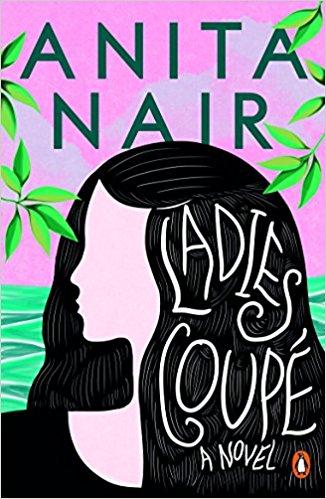 Meet Akhila: forty-five and single, an income-tax clerk, and a woman who has never been allowed to live her own life - always the daughter, the sister, the aunt, the provider - until the day she gets herself a one-way ticket to the seaside town of Kanyakumari. In the intimate atmosphere of the all-women sleeping car - the 'Ladies Coupe' - Akhila asks the five women the question that has been haunting her all her adult life: can a woman stay single and be happy, or does she need a man to feel complete?
Meet Akhila: forty-five and single, an income-tax clerk, and a woman who has never been allowed to live her own life - always the daughter, the sister, the aunt, the provider - until the day she gets herself a one-way ticket to the seaside town of Kanyakumari. In the intimate atmosphere of the all-women sleeping car - the 'Ladies Coupe' - Akhila asks the five women the question that has been haunting her all her adult life: can a woman stay single and be happy, or does she need a man to feel complete?This wonderfully atmospheric, deliciously warm novel takes the reader into the heart of women's lives in contemporary India, revealing how the dilemmas that women face in their relationships with husbands, mothers, friends, employers, and children are the same world over.
It is difficult to be born as a woman. From day one, she is burdened with expectations. No, I am not talking about Indian women only but worldwide. There are many a moniker bestowed upon women – she is a daughter, a sister, a friend, a lover, a wife, mother, a teacher, a mentor, a guide, a nurturer, a caregiver, etc. I could go on an on. With the many roles, comes many requirements – a woman should be delicate, beautiful, loving, fragile, domestic goddess, maternal, docile, submissive. And if, god forbid, she doesn’t choose to be any one of these, she invites shame. She is just not good enough.
It is an odd, uncomfortable feeling. A discomfort, a stiffness one must live with, and it weighs one down, i.e., living one’s life solely for others, without having any say. It is what Akhila or Akhilandeshwari, the 45-year old, single, never-been-married protagonist of Ladies Coupe lives with.Finally fed up with her caged existence having lived for her mother and sibling all these years, Akhila embarks on a solo journey, shocking everyone. As a lone woman, she gets a seat/berth in the Ladies Coupe along with five other women. They are all strangers to each other, from different walks of life, different personas and yet, when they come together, they all seem to question the same things – can’t not a woman live her life without a man? Does she really need permission to do what she wants and how she wants even if she is accomplished? Is sacrifice only a woman’s prerogative? Through their journey, each of these women shares what their life is all about, her ambitions or the lack of it, their desires, their choices, etc. They bare their souls and their hearts to complete strangers. These women are never likely to meet again and even if they do, the invisible they formed on their journey, there is no fear of judgment.
Each of them, even Janki and Prabha, who seem to have an accomplished family life, don’t feel fulfilled. One berates and secretly loathes her loving husband while the other has clipped her own wings to molded herself as the perfect housewife, as the epitome of womanhood to maintain the sanctity of her marriage in society.
On the other hand, women like Margaret Shanthi are women never to be trifled with. Her patient, slow and revenge over her narcissist, dominating husband is worthy of respect. The killing of her ambition and dreams thanks to her blind love for an undeserving man probably hurt me the most.
On Marikolanthu, I don’t have words to fathom or express how I feel about her circumstance and the choices she made. She chose to survive and make the best of her situation. Once you get to know her, you will be sure that she will carry on, make tough decisions for the sake of living. For Sheela, the youngest who was yet to begin her journey as a woman, we already know how life would shape up for her.
Coming back to the protagonist, Akhila, the reader can feel her frustration, resentments and the unspent anger. I was jubilant when she finally puts her younger, selfish sister in her place and drops the façade of the protector and breadwinner of the family to live her life. To many, the ending was an anti-climax, but to me, I felt it was Akhila’s choice, and the very idea of this book was to be non-judgmental.
Ladies Coupe is an enjoyable read with the narrative constantly shifting to different an ‘I’. I think the author has done justice to all her characters, but I felt Prabha and not Janki, was the weakest link. Through this book, Ms. Nair brings out the perverse complexities of relationships, shedding light on how each one of us is a medium to serve a purpose in life. If we do not decide this purpose for ourselves, someone else will.
Bookworm Rating: 4/5
